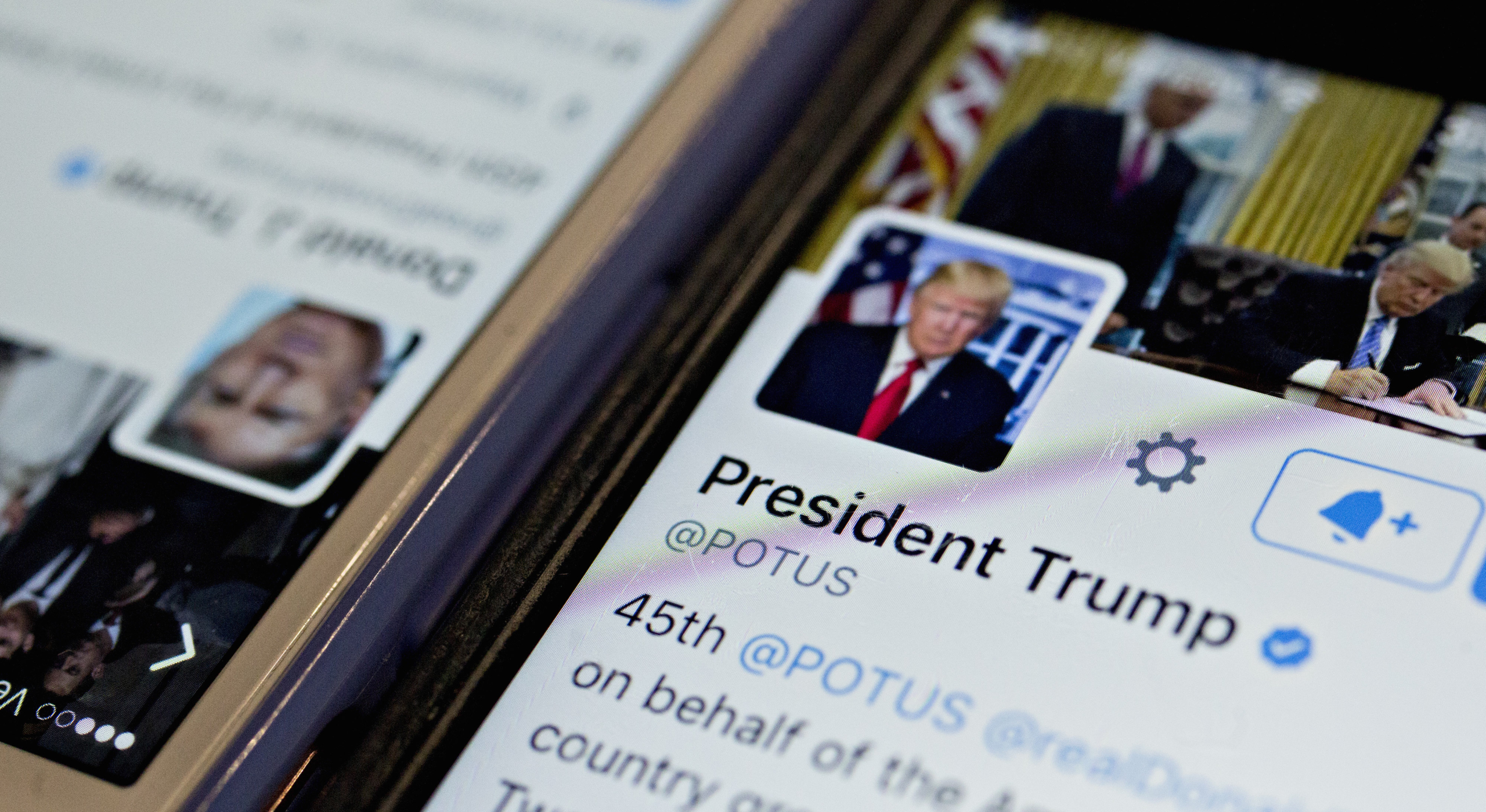Sign up for The Media Today, CJR’s daily newsletter.
Donald Trump again scrubbed his Twitter account this week, deleting tweets supporting defeated Alabama Senate candidate Luther Strange. The president isn’t fooling anyone: Countless online observers, from ProPublica to an army of Twitter bots, had already scooped up the tweets and preserved them for posterity.
But beyond the dubious public-relations value of deleting tweets, the move has reopened a legal debate the media has variously called “intriguing,” “heated,” and “ambiguous.” So does Trump have the right to hit the delete button? CJR set out to explore that question, with particular attention to laws governing presidential speech.
Is Trump breaking the law when he deletes tweets?
No. The debate here isn’t so much about the act of deleting tweets, but whether Trump keeps the deleted tweets archived somewhere. It doesn’t matter that journalists and amateur Twitter hacks are keeping copies—the 1978 Presidential Records Act, passed in response to Watergate, puts the responsibility to make a permanent copy of records squarely on the shoulders of the president. One good way of doing this, experts say, would be through the National Archives, the agency that keeps and organizes federal records.
ICYMI: 7 examples of amazing journalism published by Playboy
So… is Trump archiving his deleted tweets?
In a statement to CJR, a spokeswoman for the National Archives says they’ve been told the White House is backing up Trump’s deleted tweets—from both his personal and official Twitter handles. But the Trump administration hasn’t done much to prove that. (CJR’s requests for comment from the White House Press Office were not returned.) The White House’s online privacy policy states that tweets, direct messages, and Twitter mentions are automatically archived. But that language was crafted by the Obama administration, and only applies to “official White House accounts”—so presumably not @realDonaldTrump.
So if Trump isn’t archiving his deleted tweets, is he breaking the law?
That’s the crux of the debate, and the answer hinges on whether his tweets are considered to be presidential records under the Presidential Records Act. In April, the National Archives advised the White House to treat them as such and back them up. The Archives don’t have the power to define what constitutes a record, but their official word carries a lot of weight. The PRA itself contains a pretty exhaustive definition of what constitutes a presidential record. As Nate Jones of the National Security Archive, a nonprofit focused on government secrecy, puts it: “Generally, I think there’s extremely little question that tweets are considered presidential records.”
But the PRA was passed in, what, 1978? Twitter wasn’t around back then…
That doesn’t really matter. As Jones notes, “The PRA didn’t use to say the word ‘email’ but they were defined as records as well.” The original act actually does contain language around the digitization of documents. And in 2014, the law was updated to explicitly include electronic records.
That’s not to say everyone thinks tweets always fall in the purview of the PRA. In an email to CJR, Corey Goldstone, a spokesman for the Campaign Legal Center, says the law “was designed to reduce secrecy, but in this case, President Trump’s position on the Alabama Senate race was publicly reported and in no way a secret.” But according to the letter of the law, it seems far more likely than not that tweets do count as presidential records.
ICYMI: Oof! Here are headlines editors probably wish they could take back
So that’s that.
Not quite. The PRA only covers records that relate to the “constitutional, statutory, or other official or ceremonial duties of the President.” That wording is ambiguous, but it’s certainly possible that tweets supporting a Senate candidate don’t fall into one of those categories.
But Shontavia Johnson, a law professor at Drake University, says excluding that type of tweet from the definition of a presidential record would be “creative.” “The way [a record] has been interpreted is to include things that have historical or informational value or significance,” she says. “Courts are hesitant to tell the president what to do, but courts also err on the side of archiving as much information as possible.”
And Trump has deleted tweets before that came much less ambiguously under the umbrella of his official duties, including one in February about a meeting with generals at Mar-a-Lago.
Just tell me already: Is Trump getting impeached over this?
Almost certainly not. He says he’s archiving his deleted tweets, and it’s not clear who has the authority to ask him for supporting evidence. And there’s probably enough legal ambiguity in presidential records laws to protect him, in any case.
So should we all stop worrying about this?
Definitely not. The National Security Archive, where Jones is a senior researcher, is suing the Trump administration over broader breaches of records laws—not just deleted tweets, but encrypted messages on apps like Signal. And records retention isn’t the only legal question hanging over Trump’s continued use of his personal Twitter account.
The Knight First Amendment Institute at Columbia University reported Wednesday that the White House will not contest its claim that Trump has blocked users for criticizing the president and his policies—the heart of the institute’s court push to establish that the president’s personal Twitter is a public forum. “A bedrock principle of First Amendment law is that the government can’t restrict speech based on viewpoint,” says Katie Fallow, a senior staff attorney at the Knight First Amendment Institute, in an interview.
Away from the legal realm, the president trying to alter the historical record on his own presidency just isn’t good practice. “For people to have trust in the government there needs to be a clear record of what did and didn’t happen,” says Jones. “It’s never good when the government tries to rewrite history.”
ICYMI: Reuters reveals new ambitious Trump plan
Has America ever needed a media defender more than now? Help us by joining CJR today.



